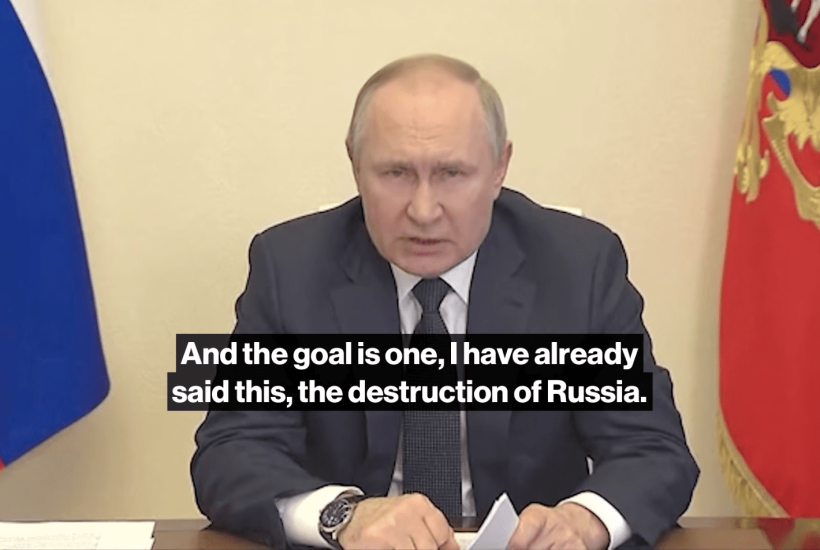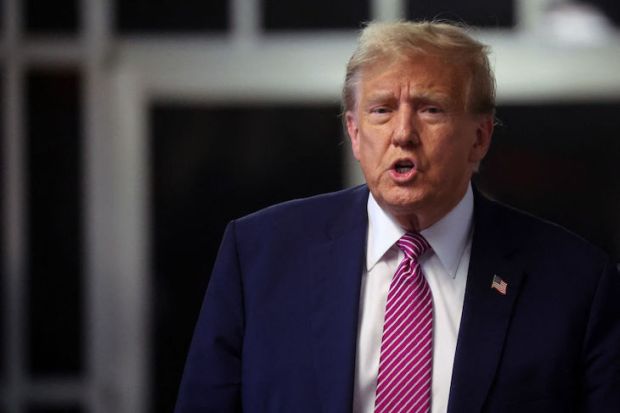Putin, of course, can never be wrong. Hence the desperate struggle, familiar to other personalised authoritarianisms, to find suitable scapegoats, because if the monarch is infallible, then anything that goes badly must be someone else’s fault, whether because they misled the boss or simply failed to follow orders. What is especially alarming is when the blame comes to fall on a whole country for failing to live up to his notion of their destiny.
Colonel General Sergei Beseda, head of the Fifth Service of the infamous Federal Security Service (FSB), is reportedly under house arrest, accused of embezzling funds intended for the subversion of Ukraine. However, Beseda was one of the key figures known to have been echoing back to Putin all his increasingly-bizarre views about the Ukrainians. The widespread assumption is that he is being blamed for the serious strategic errors which have hampered Russia’s invasion.
We may well not be willing to shed any tears for Beseda, but in fairness, what else was he going to do? It has been clear for years that Putin has become intolerant of alternative perspectives and expects people to tell him what he wants to hear, not what he needs to know.
But Beseda’s fall from grace is likely only the start of the game of murderous musical chairs that follows any debacle. Defence Minister Sergei Shoigu still seems to be trying to brazen it out, saying everything is going to plan. National Guard commander Viktor Zolotov is claiming that the nasty Ukrainian soldiers are hiding behind civilians. The FSB is hoping that throwing Beseda under the bus will be enough.
At the same time, though, from the comfort of his well-catered and tastelessly-blinged out palaces, Putin is clearly growing impatient with Russians themselves for not being willing to sacrifice their future to his vision of a great Russia.
Yesterday, at a videoconference with his ministers, Putin launched a vitriolic attack on ‘the so-called fifth column, on national traitors, those who earn money here, with us, but ‘live’ over there. Live, not in the geographical sense, but in the sense of their thoughts, their slavish thinking.’
Usually, this is the prelude to an attack on the liberal, cosmopolitan middle classes of the big cities, who have been such a thorn in his side. However, he made it clear his targets were also rather more high-rolling:
‘I am not at all judging those who have a villa in Miami or the French Riviera, who cannot do without foie gras, oysters or so-called gender freedoms. The problem is absolutely not in this, but … that many of these people, by their very nature, are mentally located precisely there, and not here, not with our people, not with Russia.’
As far as he was concerned, he felt these people believed they belonged ‘to a higher caste, to a higher race.’ That did not exempt them from playing their part in the current struggle, though. After all, ‘the Russian people, will always be able to distinguish the true patriots from the scum and the traitors, and just spit them out like a fly that accidentally flew into their mouths.’
Even the oligarchs and minigarchs have been put on notice. When he first became president in 2000, Putin offered them a deal: they could keep their wealth if they kept out of politics (and Mikhail Khodorkovsky, then Russia’s richest man, paid the price as an example). Now he is going further, demanding not just their acquiescence but their active loyalty.
So much, incidentally, for the fond hope that sanctions on oligarchs abroad will make them put pressure on Putin at home: faced with surrendering a yacht here and a villa there, or their life and liberty, the choice he is imposing on them is pretty clear.
This is a step towards totalitarianism, with every Russian, rich or poor, being demanded to make a choice: are you with or against Putin? There is no more room for neutrality or loyal opposition, caveats or concerns. Or else? Or else what he chillingly called a ‘natural and necessary self-cleansing of society,’ that he believed ‘will only strengthen our country, our solidarity, cohesion and readiness to meet any challenge.’
Of course, another word for cleansing is ‘purge.’
Got something to add? Join the discussion and comment below.
Get 10 issues for just $10
Subscribe to The Spectator Australia today for the next 10 magazine issues, plus full online access, for just $10.



















Comments
Don't miss out
Join the conversation with other Spectator Australia readers. Subscribe to leave a comment.
SUBSCRIBEAlready a subscriber? Log in